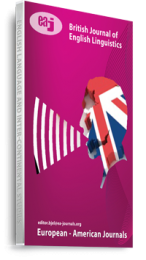This study uses Halliday’s transitivity theory to analyse the use of language in President J. A. Kufuor’s farewell address to Parliament. The study uses the content analysis design to analyse all the clauses in the address. The study reveals that among the six process types under the transitivity model, the material processes are used maximally in the speech whereas the existential processes are used minimally. There was, however, no behavioural process in the address. The dominant use of material clauses suggest that Kufuor interprets the world in terms of his past and present “goings-on” happenings by recounting some of the concrete achievements recorded under his eight-year stewardship and making useful suggestions to the incoming government in order to ensure continuity in projects his administration has initiated. His choice of actors suggests that Kufuor attributes the achievements to himself which may be perceived as a feature of undemocratic leadership style; however his determination to share his wealth of experience with the incoming government corrects the impression that he is undemocratic. He also uses a majority of relational identifications to point out to himself and his administration as the main development players. Verbal processes have been used as markers of transition and topic shift; still, he refers to himself as the main sayer. The study concludes and affirms that material, relational and mental processes are the three primary processes often used in language since the three add up to about 90% (Halliday&Matthiessen, 2004).
Keywords: Farewell Address, Ghana, John Agyekum Kufuor, Parliament, Political Ideologies, Systemic Functional Grammar, Transitivity

